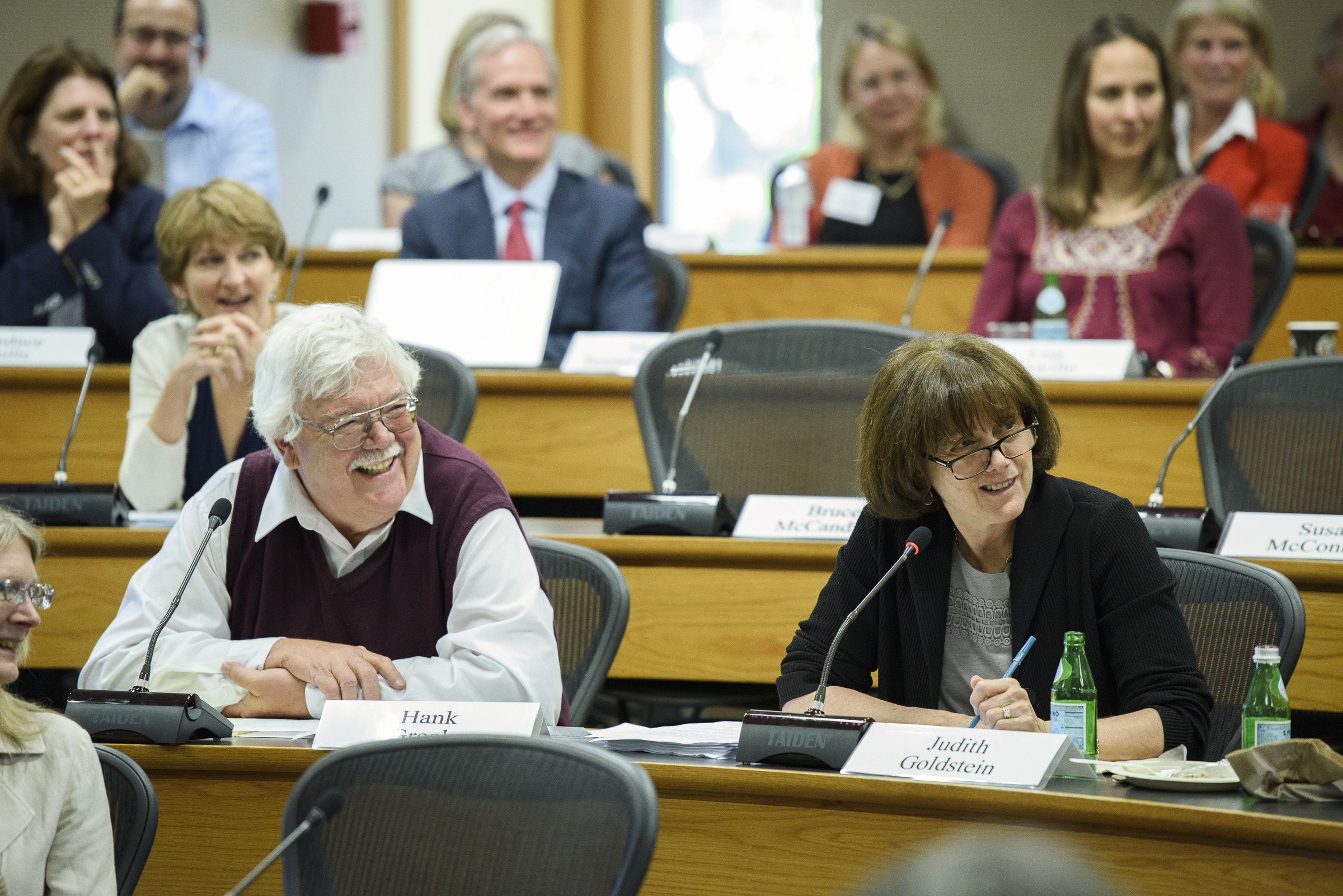Co-chairs of the Board of Judicial Affairs (BJA) computer science professor Keith Schwarz ’11 MS ’11 and Glen Husman ’23 presented a list of recommended revisions to the Stanford Honor Code, drafted in collaboration with the Committee of 10 (C-10), during Thursday’s Faculty Senate meeting.
The C-10 is tasked with examining and updating student-accountability processes. It is composed of four faculty members, four staff members and two students. Schwarz and Husman discussed seven of their recommendations, though they clarified that the C-10 will propose more substantial recommendations in the next academic year, subject to approval by various University decision-making bodies.
“These are things that we believe will give the community as a whole a lot more ownership over the Honor Code, and will clarify different responsibilities and ensure that the means of the Honor Code proceed smoothly,” Schwarz said.
The first two recommendations, Husman said, were concerned with giving students a stake in upholding the Honor Code.
Under the first recommendation, “every student, matriculated or otherwise, is required to complete training on the Honor Code upon entering Stanford and every year thereafter,” the recommendation read, which contrasts the current policy that only requires training for matriculating first-year and new transfer students.
BJA’s second recommendation called for “student-led discussions about the Honor Code” early on in a student’s Stanford experience to “foster student ownership,” Husman said.
BJA also recommends that departments and schools work with the Office of Community Standards to train their course instructors and teaching assistants about their responsibilities under the Honor Code, Schwarz added.
The fourth and fifth recommendations called for every course instructor to include a statement of the Honor Code in their initial course material, and for students to be required to attest their commitment to follow the Honor Code during major assignments and exams.
Husman also presented recommendations concerning future revisions of the Honor Code.
“Every year, the Board on Judicial Affairs will solicit community feedback and convene a meeting to discuss issues that have arisen under the Honor Code and possible remedies, including proposed bylaw changes,” Husman said.
The final recommendation was for the University to “periodically convene a committee to undertake an in-depth review of the Honor Code, to assess its form and function in the Stanford community.” The suggested length of time was every five years.
Engineering professor Juan Santiago urged Stanford to revise the Honor Code to allow faculty to proctor exams. He said that he has often seen students “standing up looking over somebody’s shoulder” or exchanging their test when he has entered the exam room to answer a question.
“I think [students] see this all the time, and it’s almost as though it teaches them that Stanford does not take the Honor Code seriously,” he said.
Political science professor Judith Goldstein, a former Senate chair, said that the current policies regarding cheating require students to “feel bad if they do report, and feel bad if they don’t report.” She added that the current rules result in a “lack of clarity” and “lack of fairness” when examining how the Honor Code is applied across the board.
“I would urge you to start to think about those sets of problems, because they’re the fundamental problems that have made it very hard for us to do what we all want to do, which is make sure we have a good Honor Code,” Goldstein said.
The Senate also voted in favor of changes to the Charge of the Committee on Undergraduate Admissions and Financial Aid (C-UAFA) to prevent faculty conflict of interest.
C-UAFA is one of several Academic Council committees that facilitates University and academic governance. In the past, a de-facto policy had barred faculty members who have a child or close family member approaching the stage where they will be applying to college from serving on this committee in order to minimize unfair advantages according to the Committee on Committees.
At the meeting, however, the Senate unanimously voted to codify restrictions on faculty participation on Academic Council committees if there is a conflict of interest in order to standardize procedure.
